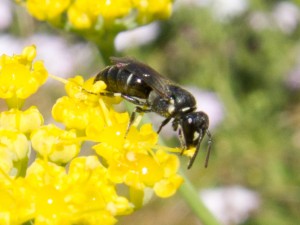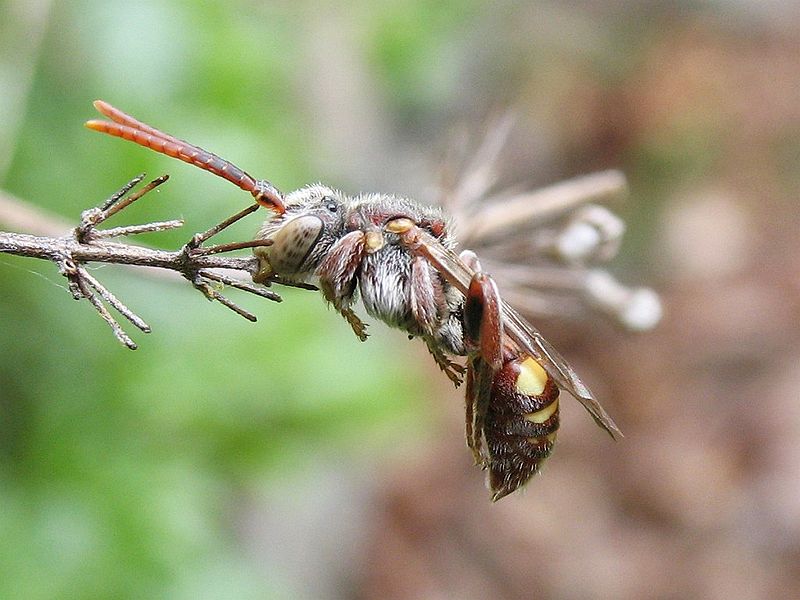I already knew about the existence of cuckoo bees. These are bees that lay their eggs in the already provisioned nests of pollen collecting bees so that they don’t have to bother collecting pollen themselves. This means that they don’t have the hairy pollen baskets on their legs. This is one way of differentiating them from the hosts that they have evolved to mimic. However, an interesting article by Mike Edwards in the excellent British Wildlife Magazine gave me an insight into different types of bees and why their efficiency at pollinating plants varies so much.
The standard belief is that there is a mutually beneficial relationship between plants and pollinators whereby plants provide nectar as a foodstuff for the pollinating insect. In turn the bee moves pollen from the male part of the flower to the female whilst collecting it to take back to the nest for their larvae. This article revealed that this only occurs with certain species and that in many cases the plant is robbed!
 What I didn’t know before today is that some bees, such as this white faced bee, are almost hairless and eat the pollen and nectar they collect before flying back to the nest; therefore denying the flower its rightful pollination.
What I didn’t know before today is that some bees, such as this white faced bee, are almost hairless and eat the pollen and nectar they collect before flying back to the nest; therefore denying the flower its rightful pollination.
The best known bees are the honey bees and the bumble bees, however, I also learned today these are not very efficient pollinators. In some cases these bees manage to get the nectar and avoid the reproductive parts of the flower and therefore don’t pollinate it at all. However, even if they do collect the pollen in the baskets on their legs, they need to wet it with nectar so that it doesn’t fall out. This means that the pollen isn’t readily transferred to the female part of the flower. Honey and bumble bees are, in effect, pollen robbers!
Whilst googling cuckoo bees for this short article I also came across this cool picture on Wikipedia. A cuckoo bee asleep, using its mandibles to hold on – what a fantastic shot! Until today I didn’t realise that bees did this!

